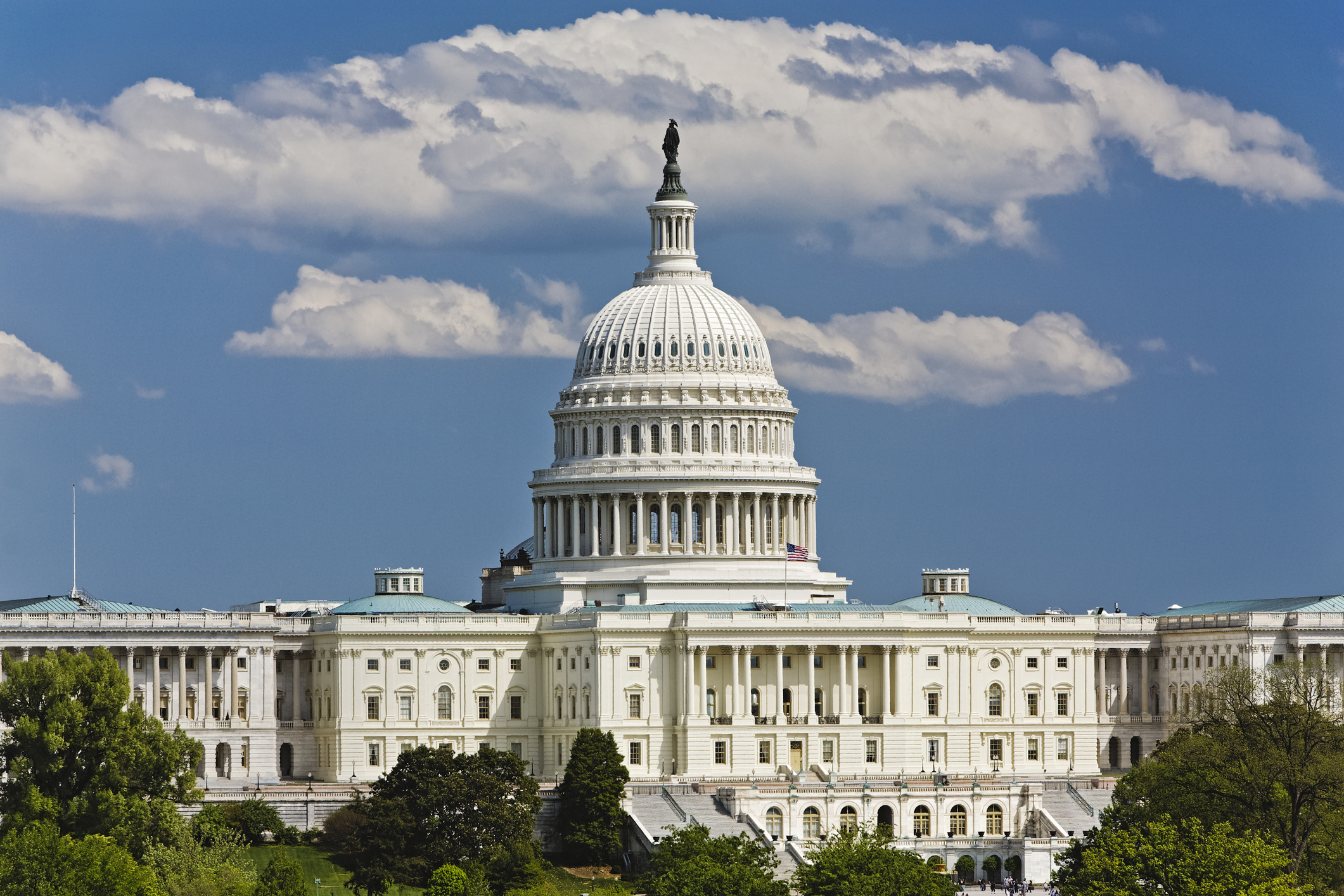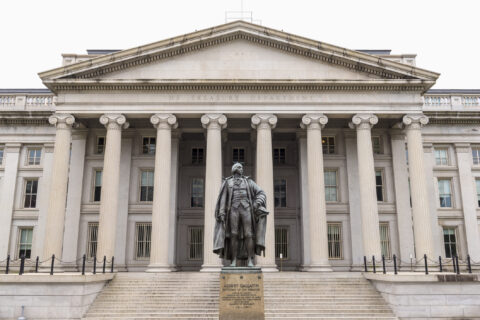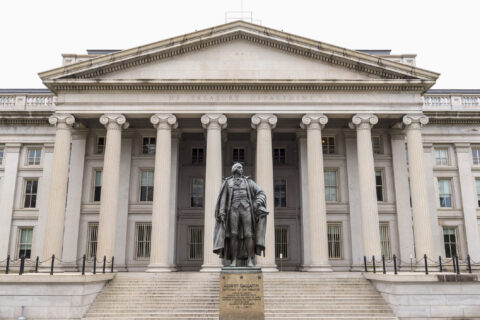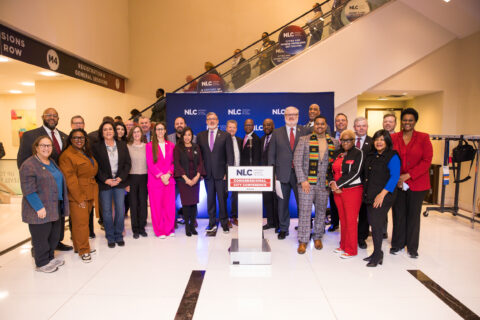The final work period of the 118th Congress is underway and there are a host of bills to pass before new leaders are seated in the White House and Congress next January. The “Lame Duck Session,” taking place after the election but before the start of the new Session of Congress, is the last chance for Congress in its current leadership configuration to complete work on legislation before all existing legislation expires at the start of the 119th Congress next year.
Here are the key local government priorities that remain on Congress’s 2024 to do list.
Finish Federal Funding Packages
2025 Appropriations
Congress has not passed any of the 12 annual federal spending bills for Fiscal Year 2025 and has relied on a series of Continuing Resolutions to keep the federal government funded and operating. The current Continuing Resolution expires on December 20. Congress must act to either pass the annual spending bills or pass a new Continuing Resolution to extend the deadline beyond December 20. If Congress is unable to do either, federal spending authority will expire and the federal government will shut down. However, if Congress is able to pass another Continuing Resolution, which is the most likely outcome, responsibility for FY2025 appropriations will essentially be handed over to the next President and Congress next year.
Disaster Assistance and Recovery
On November 18, 2024, 415 mayors and councilmembers sent a letter to Congress urging the swift passage of an emergency disaster relief bill to support communities impacted by disasters since 2023. On the same day, the Biden-Harris Administration formally requested that Congress approve a nearly $100 billion comprehensive disaster relief package in response to a series of devastating storms, including Hurricanes Helene and Milton, that have struck the United States since the last major disaster package was passed in December 2022. Congress is likely to consider supplemental disaster relief funding as part of the Continuing Resolution.
Reauthorize Key Programs
EDA Reauthorization
The U.S. Economic Development Administration (EDA) leads the federal economic development agenda by promoting innovation and competitiveness, providing grants and aid to American regions for success in the worldwide economy. Despite EDA’s increased role in recent years and significant changes to the U.S. economy, the agency has not been reauthorized since 2004. House and Senate leaders have announced a bipartisan agreement to pass EDA Reauthorization and the Water Resources Development Act together as a single bill during the lame duck. NLC has long advocated for EDA reauthorization and more EDA aid for smaller cities and towns, which the bill would deliver.
Water Resources Development Act (WRDA)
The Water Resources Development Act authorizes flood control, navigation and ecosystem restoration projects under the U.S. Army Corps of Engineers. The House and Senate passed their versions of WRDA (H.R. 8812 and S. 4367) before the August recess, and this week Congressional leaders released the conference legislative text, which both chambers are expected to vote on next week. NLC supports the bill and urges Congress to pass it before the end of the year to maintain the biennial schedule and bipartisan support.
WIOA Reauthorization
The Workforce Innovation and Opportunity Act (WIOA) is the primary federal legislation that invests in workforce development programming and provides funding to states and local areas to ensure that communities can support a demand-driven and coordinated workforce development system that supports local economic competitiveness. Authorization for WIOA expired in 2020, and Congress has extended its authorization through the annual appropriation process without meaningful updates. This week, the House and Senate released bipartisan, bicameral bill text with an effort to pass the reauthorization in the lame duck session. There continues to be local concerns with several key provisions that would hamper local flexibility and circumvent the voice of local stakeholders. Additionally, there are concerns regarding the local implementation timeline of the legislation and implications of the proposed changes given the funding levels of the WIOA system. NLC continues to amplify the impacts to local governments in the process with key leadership and committee offices.
Farm Bill
The Farm Bill is a five-year authorization of programs related to agriculture, food and nutrition, rural development and conservation under the U.S. Department of Agriculture. The current Farm Bill expired in Sept. 2023, but has been operating under a one-year extension through the end of 2024. While the House Agriculture Committee passed its version of the Farm Bill in May, the Senate Committee on Agriculture, Nutrition and Forestry only released their version in November. With time running short, Congressional leaders are looking toward another extension.
National Flood Insurance Program (NFIP) Reauthorization
Once again, Congress will need to pass another short-term reauthorization of the NFIP as part of the Continuing Resolution. Since the end of FY2017, Congress has passed 31 short-term NFIP reauthorizations. The NFIP is currently authorized until December 20, 2024.
Respond to Safety Issues
Rail Safety
After a catastrophic derailment in East Palestine, Ohio, that impacted several states, Senators Brown and (now Vice President-Elect) Vance from Ohio introduced the Railway Safety Act of 2023, and both the House and Senate have negotiated in Committee with widespread support from Congress. This bill could move with priorities like emergency relief.
PFAS Municipal Liability Protection
In April, the U.S. Environmental Protection Agency finalized a rule designating two PFAS chemicals as hazardous substances under the Comprehensive Environmental Response, Compensation and Liability (CERCLA) Act, also known as Superfund law. NLC is advocating for liability protection for municipal drinking water, wastewater and stormwater utilities, landfills, solid waste facilities, airports and fire departments within broader PFAS legislation. Such a provision is essential to ensuring adherence to a “polluter pays” model, rather than shifting the financial burden onto communities and taxpayers. Tell your Congressional delegation that municipal liability protection language must be included in any PFAS legislation.










